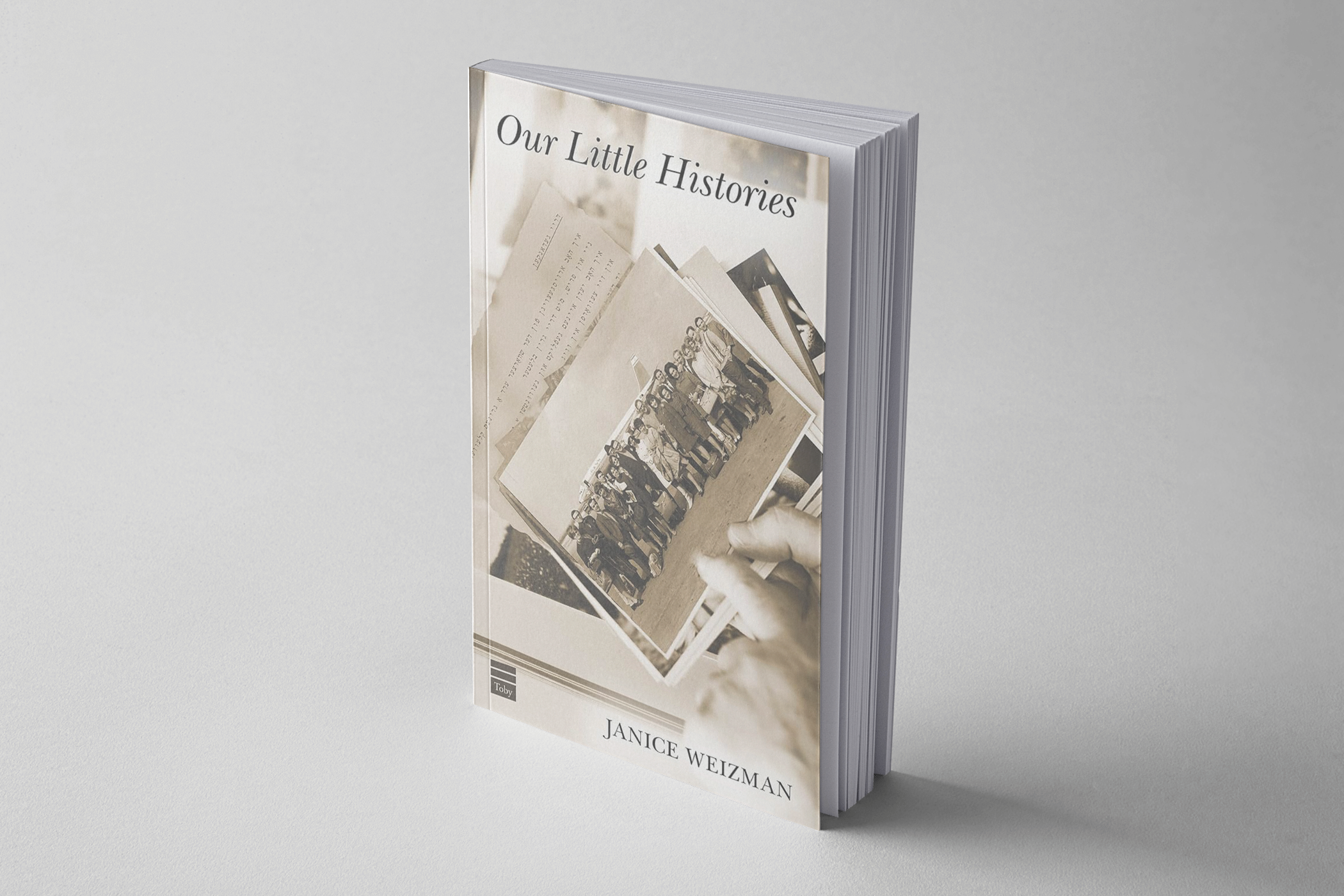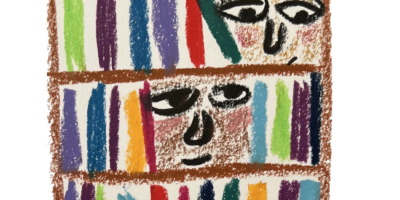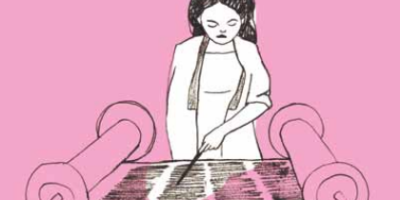
A Backwards Family Tree
What does Jennifer Greenberg-Wu, an American-Jewish museum curator working on a reality show in rural Belarus, have to do with Raizel Shulman, a Russian mother desperate to save her triplet sons from being drafted into the czar’s army? The answer spans three continents and nearly two centuries, and it is the spellbinding tale that Janice Weizman weaves in Our Little Histories (Toby Press, $17.95), a novel that unfolds back- wards to tell the story of a family’s history one generation at a time.
Each of the book’s seven chapters focuses on another branch of the family tree that connects Jennifer back to Raizel. We witness the encounter between Jennifer’s mother Nancy Wexler, a young feminist hippie from Chicago, and her distant cousin Yardena, 25 years old and happily pregnant in Tel Aviv in 1968. In the next chapter we meet Yardena’s mother, Tamar, who, while smuggling guns for the Haga- nah, engages in a fateful act of betrayal with a visitor to her home on Kibbutz Hadar, where she has made her home ever since her parents sent her off on a train from Minsk in 1927. In the next chapter we meet Tamar’s distant cousin, Gabriel Schulman, a literature teacher in Vilna, who is attacked in a dark alley in Tamar’s impassioned letters pleading with him to come to Palestine before the situation in Europe gets worse for the Jews. “To be a Jew in Vilna, or Poland, or perhaps anywhere, is to find courage where you thought you had none, to feel it flowing through your veins like blood,” Gabriel thinks in the seconds before he is attacked.
Set one year earlier but thousands of miles across the Atlantic Ocean, the following chapter focuses on a third branch of the family—not those who stayed in Europe or settled in Palestine, but those like Nat Wexler, a first-generation American journalist in Chicago who is also Tamar and Gabriel’s cousin. Nat understands Yiddish but cannot speak it, and prides himself in his assimilation into American culture; he dreads bringing his fashionable, light-hearted Jewish-American girlfriend to the Yiddish theater with his mother, who is eager to meet her. The penultimate chapter takes us back forty years earlier to turn-of-the-century Belarus, where Gabriel’s father Yoyna is sent on a mission by his own father to reunite with his father’s two brothers; all three brothers were separated at a young age. In the book’s compelling, heart-wrenching final chapter, we meet three triplet boys, one of whom is Yoyna’s father, and we learn the reasons for their tragic separation by their mother Raizel in the shtetl in 1850, where “every year, right around the short dark days leading up to Hanukkah, the boys of Propoisk become scarce…gone for weeks or even months at a time.”
Like A .B. Yehoshua’s Mr. Mani, which follows a Sephardi family back in time, Our Little Histories is a book that demands re-rereading, backwards, from the last chapter back to the first. Connecting threads link one generation to another, and serve as leitmotifs through out the book, like the poem in three stanzas that Raizel Schulman pens just before she parts from two of her triplets so as to spare them from the czar’s army; each son receives one stanza, and the poem is published in a 1914 Yiddish anthology which Yoyna gives to Gabriel, who mails it to Tamar, who donates the slim booklet to the Yiddish library in Tel Aviv, where Yardena and Nancy find it; Nancy will give that booklet to Jennifer to take with her to Belarus for her reality show. When Jennifer’s mother hands her that booklet, she is convinced she has seen it before, and her deja-vu mirrors that of the reader, who will encounter and re-encounter the anthology, and Raizel’s poem, in each of the book’s seven chapters.
Our Little Histories is masterfully constructed, such that the book’s final chapter is both inevitable—it couldn’t possibly have been any other way—and yet impossible to predict. The three branches of Raizel’s family, who make their homes in Europe, Israel, and America, offer us an intimate window into aspects of Ashke- nazi Jewish history—pogroms and Zionism, yeshiva culture and the assimilation, the kibbutz and the shtetl. We have all tragically witnessed how the legacy of persecution has reverberated even in the Jew- ish homeland, a reminder of the unbear- able sacrifices and the acts of raw courage that continue to forge us as a people.






